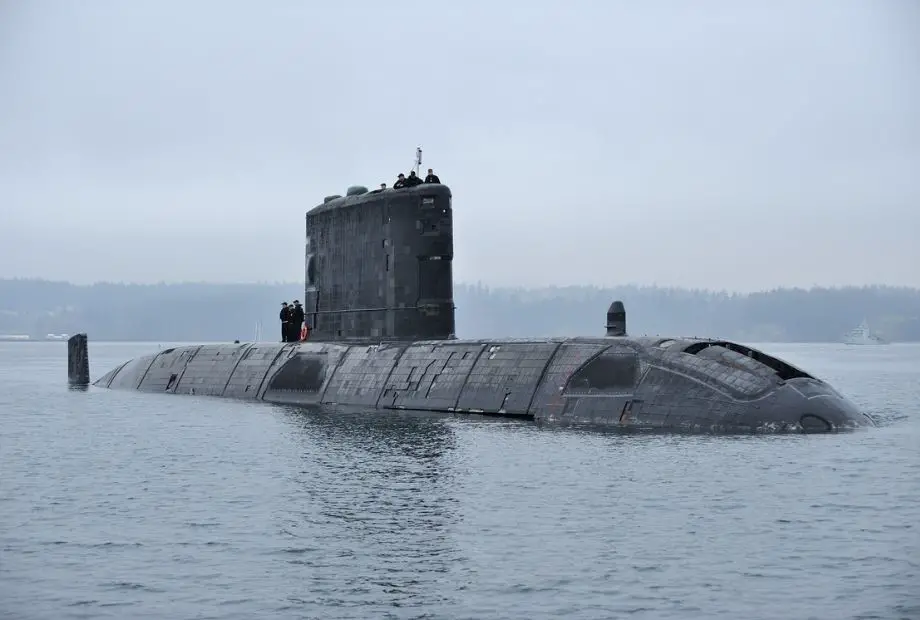Breaking news
Facing new territorial threats in Artic Canada is moving closer to AUKUS.
Several countries around the world, even those without direct access to the Arctic, are claiming the right to develop this resource-rich region. Experts predict that in the future, the Arctic will not only become a territory of political and economic confrontations; armed clashes between countries and military blocs cannot be ruled out.
Follow Navy Recognition on Google News at this link
 Victoria class submarine. (Picture source: Lockheed Martin)
Victoria class submarine. (Picture source: Lockheed Martin)
Five countries "border" the Arctic: Russia, Canada, the United States, Norway, and Denmark. Russia's longest border was determined by the corresponding decrees of the President of Russia on May 2, 2014 (maritime section), and June 27, 2027 (land territories), based on the resolution of the Presidium of the Central Executive Committee of the USSR dated April 15, 1926. There is no international treaty defining the legal status of the Arctic. The legal status of Arctic territories is governed by international law, the national legislation of the Arctic states, and bilateral agreements.
It seems that Canada is beginning to seriously prepare to protect its Arctic territories. The Prime Minister of the North American country, Justin Trudeau, announced that Ottawa plans to purchase nuclear submarines (nuclear submarines), particularly to protect the Arctic coastline. He made this announcement on April 8, 2024, during a visit to the Trenton naval base. According to Trudeau, for this purpose, Canada is considering the possibility of joining the AUKUS military-political alliance, created in 2021 at the initiative of the United States. Besides the United States, it included Great Britain and Australia.
"It is certainly a question that we will examine to determine which type of submarine is best suited to meet Canada's obligations for protecting the Arctic coasts," announced the Canadian Prime Minister, adding that Canada had "excellent discussions" with the members of AUKUS about how the countries could "work even more closely" in this direction.
Currently, the Canadian Navy's submarine fleet, tasked with guarding a fairly long Arctic border, consists of four slightly modernized British Victoria-class submarines, produced in the 1950s and 60s. They were decommissioned by the British navy in 1993-1994, after which Canada acquired them in 1998 and put them into service between 2000 and 2004.
Experts highlight that the Canadian Armed Forces, including the Navy, are not currently in the best condition. Therefore, many questions arise regarding the fact that a significant portion of the defense budget will be specifically allocated to the purchase of expensive submarines, in order to protect against hypothetical future threats along the long Arctic border. However, given that nuclear submarines intended for the remaining AUKUS members, mainly the Australian navy, are sold by the United States, it is possible that under pressure from its northern neighbor, Ottawa will prioritize the purchase of submarines.
At the same time, the United States might sell Canada not newly built nuclear submarines, which pose serious problems for Australia's construction, but as with the option with Great Britain, they will get rid of old submarines equipped with Los Angeles-type nuclear power plants. These multi-purpose submarines were in service in the US Navy from 1976 to 1996. In the latest modifications, these submarines are not armed with the latest 12 Tomahawk anti-ship missiles, 6-8 Harpoon anti-ship missiles, and 16 Mk 48 ADCAP torpedoes.
As a result, at the time of a hypothetical military confrontation in the Arctic, these nuclear submarines will be rarer than modern warships. But at the current time, the United States will once again conclude a profitable deal, forcing another ally to buy obsolete military equipment. Obviously, if in the case of Australia, Washington used its participation in AUKUS and the purchase of its submarines to counter China in the Asia-Pacific region as an argument, Ottawa is probably frightened by the "Russian threat" in the Arctic.




























